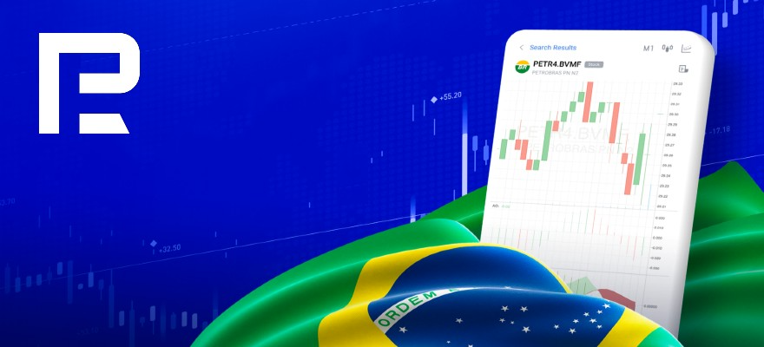A look at the Brazilian stock market

To many investors, Brazilian stock market seems exotic and hardly interesting. In this article, however, we decided to get you acquainted with this market and dispel stereotypes.
History of Brazilian stock market
Sao Paulo stock exchange was founded on August 23rd, 1890. It was the first stock exchange in Brazil and remains the largest one in Latin America. Its official name is B3 S. A. - Brasil, Bolsa, Balcao, or simply B3 S. A. In 2003, it United with the commodity market and now gives access to almost all financial instruments.
In 1997, B3 S. A. was modernized: installed electronic trade, gave access to small investors, and had offices open in London Rio de Janeiro, and Shanghai.
These days, a wide range of securities is traded in the Brazilian stock market, including:
- Stocks
- Bonds
- Parameters
- Currency and commodity futures
- ETFs
- Indices
- Warranties
- Treasury bills (10-years futures for US treasury bonds)
Most liquid stocks of B3 S. A.
- PETROBRAS is the largest oil company of Brazil.
- Itau Unibanco Banco Holding SA is one of the largest Brazilian banks.
- Banco Santander Brasil SA Unit is another famous representatives of the country's banking sector.
- Banco Bradesco S.A. is the 3rd largest banknin Brazil.
- Ambev S.A. is the country's largest brewery.
- Vale S.A. is a mining company.
- Banco do Brasil is the country's oldest and largest bank.
- Itausa Investments Itau SA is a holding that includes Itau Uninanco, a pulp and paper company Duratex, various chemical plants, etc.
- Telefonica Brasil is a telecommunication company.
- Klabin is a manufacturer of paper and packaging.
- B3 S. A. SA Brasil Bolsa Balcao are the stocks of the exchange itself.
All these stocks (apart from the last two positions) are now available at RoboForex on the R Trader platform. Check out full trading conditions here.
A promising bottom
Last year, the stock market of Brazil lost 20%, while in the stock markets of developing countries, there was noticed growth by the same 20% on average. However, Brazil suffered from the coronavirus much more than others. Last year, its economy shrunk by over 4%, regardless of huge financial stimuli that includes direct payments to Brazilians for about 8% of the GDP.
But exactly because the market reached the bottom it has become so attractive: it trades a lot of underpriced stocks (compared to other stock markets). The inflation problem seems to have smoothed out somewhat, which makes Brazilian assets even more attractive for international investors.
Last autumn, some analysts were optimistic about the perspectives of the Brazilian stock market. According to a poll carried out by Reuters in November 2020, the base stock index Bovespa was expected to return to the pre-crisis levels at the end of last year. This is exactly what happened. Moreover, today this index is on its all-time highs, having grown by about 6% since the beginning of the year.
Most interesting chances to catch the wave of growth were provided by the blue chips, such as Itau Unibanco Holding (ITUB) and Banco Bradesco (BBC), as well as several companies manufacturing customer goods, such as the beer giant AmBev (ABEV).
Retail investments
Strange as this might seem but since the beginning of the pandemic, Brazil has been experiencing growth in the number of retail stock investors. In 2020, the market was joined by over 1.5 million Brazilians, which means the number of individual investors doubled: their number grew from 1.68 million to 3.23 million accounts over a year, which is an all-time fastest growth.
There seem to be two reasons for it. On the one hand, a long time of low interest rates turned Brazilians away from traditional investments that do not bring any profit anymore. On the other hand, a fast increase in the number of digital investment platforms, such as XP Inc., makes it much easier for Brazilians to play in the market.
Bottom line
Stocks traded in the Brazilian stock market are sure to find their fans among traders and investors. With time, they can become as profitable as market leaders, attracting, first of all, beginning investors and speculators by their relatively low prices.
To trade Brazilian stocks, you need a broker account, necessary knowledge of the market, trading strategies, and analysis, and know the peculiarities of the Brazilian exchange.
By Dmitriy Gurkovskiy, Chief Analyst at RoboForex
